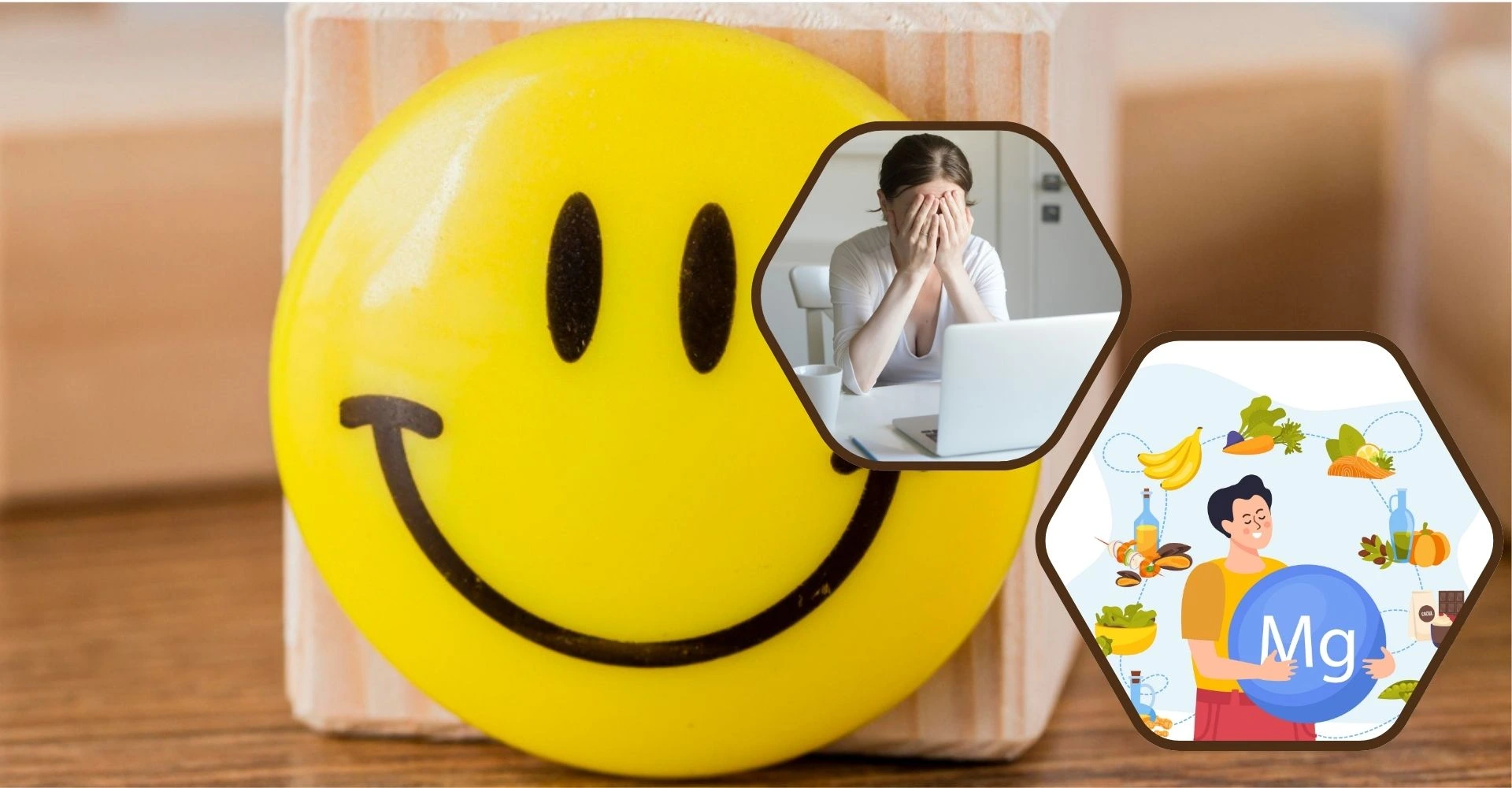Magnesium and the Happiness Index- How This Essential Mineral Can Improve UK Well-being
In an era marked by unprecedented social upheavals, the pursuit of happiness has become an elusive endeavor for many individuals residing in the United Kingdom.
The COVID-19 pandemic, coupled with economic uncertainties and the erosion of personal liberties, has cast a long shadow over the psychological well-being of the nation. While the mainstream media meticulously reports on the biological impact of the virus, the psychological toll exacted by months of lockdowns and restrictions remains a dark horse, often underreported and underappreciated.
This growing mental health crisis is reflected in the United Kingdom’s Happiness Index, which has shown a noticeable decline in recent years. Once ranked among the happier nations globally, the UK has seen its position drop in international happiness rankings. The index measures various factors such as income, social support, life expectancy, freedom, and perceptions of corruption.
With a notable shift in well-being, the UK faces an urgent need to address the psychological impact of recent societal changes and restore a sense of optimism and happiness among its citizens.
The Nutritional Panacea: Magnesium, Nature’s Gift
Amidst the chaos and uncertainty, a glimmer of hope emerges from the realm of natural health: the power of magnesium (Mg), a mineral that plays a pivotal role in elevating psychological well-being and fortifying the body’s defenses against chronic stress. As the fourth most abundant mineral in the human body, magnesium is an essential cofactor in over 300 enzymatic reactions, facilitating energy extraction from food and protein synthesis from amino acids.
However, the modern agricultural practices and the prevalence of processed foods in the typical Western diet have depleted the magnesium content in our sustenance, rendering a staggering 80% of the UK population deficient in this vital nutrient, particularly among young women. [3]
This deficiency not only compromises physical health but also exacerbates psychological distress, contributing to low mood, depression, and an imbalance in the body’s stress response system.

The Brain-Magnesium Connection: Unravelling the Mysteries
Magnesium’s influence on psychological well-being extends far beyond its role as a mere mineral. It acts as a potent regulator of the hypothalamic-pituitary-adrenal (HPA) axis, the central stress response system that governs the levels of cortisol and other critical hormones triggered by stressful events. [4]
By modulating the HPA axis, magnesium effectively mitigates the deleterious effects of chronic stress on the body and mind.
Furthermore, magnesium plays a crucial role in brain function, acting on NMDA receptors that are instrumental in brain development, learning, and memory formation. [5.] It also aids in combating fatigue, tension, anxiety, and sleep disturbances, all of which are common manifestations of psychological distress.
The Serotonin Synergy: Magnesium’s Mood-Boosting Properties
One of magnesium’s most remarkable attributes lies in its ability to regulate serotonin levels, the neurotransmitter often referred to as the “feel-good” chemical. Serotonin is a pivotal player in various bodily functions, including appetite, digestion, sleep, memory, and sexual desire and function. [6]
When magnesium levels are depleted, serotonin levels plummet, exacerbating depressive tendencies and contributing to conditions such as migraines and insomnia.
Conversely, maintaining optimal magnesium levels can help alleviate these issues, particularly during periods of heightened stress or for individuals prone to chronic stress.
As Dr. Tara Swart, a renowned neuroscientist and author of “The Source,” eloquently states, “The modern world is stressful, and when we have higher circulating levels of the stress hormone cortisol, magnesium is leached from our system at a rate that it’s impossible to replenish through diet alone.” [7]
Replenishing the Reserves: Dietary and Supplemental Sources of Magnesium
To combat the pervasive magnesium deficiency and its associated psychological consequences, a two-pronged approach is recommended: embracing a magnesium-rich diet and judiciously supplementing when necessary.
Dietary sources of magnesium include leafy greens, legumes, dark chocolate, nuts, and seeds. [8]
For those seeking an additional boost, supplements containing at least 15% elemental magnesium (approximately 57mg) can effectively support dietary intake and maintain optimal magnesium levels. [9]
Moreover, topical or transdermal magnesium applications, such as body lotions, gels, sprays, or bath salts, offer an alternative route for absorption while simultaneously promoting stress reduction and combating loneliness through the stimulation of touch receptors on the skin. [10]

The Multifaceted Benefits of Magnesium- A Panacea for Psychological Well-being
While magnesium’s impact on psychological health is undeniable, its benefits extend far beyond the realm of mental well-being.
This versatile mineral plays a pivotal role in various physiological processes, including:
- Bone Health: Magnesium is a crucial component of bone, and its deficiency has been linked to reduced bone mineral density and an increased risk of osteoporosis. [11]
- Cardiovascular Support: Studies have demonstrated that adequate magnesium intake can reduce the risk of stroke, type 2 diabetes, and heart failure. [12]
- Insulin Sensitivity: Magnesium supplementation has been shown to improve insulin sensitivity and metabolic control in individuals with type 2 diabetes. [13]
- Blood Pressure Regulation: By relaxing vascular smooth muscles, magnesium can lower both systolic and diastolic blood pressure, making it a valuable ally in the management of hypertension. [14.]
- Inflammatory Response: Magnesium has been found to reduce markers of inflammation in individuals with prediabetes and those who are overweight, contributing to the overall reduction of chronic inflammatory stress. [15]
Bridging the Nutritional Gap: Strategies for Optimal Magnesium Intake
While the benefits of magnesium are undeniable, achieving optimal intake can be a challenge in the modern dietary landscape. To bridge this nutritional gap, a multifaceted approach is recommended:
- Dietary Diversification: Embracing a diverse array of magnesium-rich foods, such as leafy greens, nuts, seeds, and whole grains, can significantly contribute to meeting daily magnesium requirements.
- Supplementation: For individuals with persistent deficiencies or those unable to meet their magnesium needs through diet alone, high-quality supplements can provide a targeted and convenient solution.
- Lifestyle Modifications: Reducing stress levels through practices like exercise, meditation, and mindfulness can help mitigate magnesium depletion and promote overall well-being.
- Education and Awareness: Raising awareness about the importance of magnesium and its impact on mental health can empower individuals to make informed choices and prioritize this essential nutrient in their daily lives.
The Pursuit of Happiness- A Collective Responsibility
In the quest for happiness and well-being, the responsibility lies not only with individuals but also with policymakers, healthcare professionals, and industry leaders. By recognizing the critical role of magnesium in psychological health, stakeholders can take proactive steps to address nutritional deficiencies and promote a holistic approach to mental well-being.
Initiatives such as public education campaigns, dietary guidelines, and accessible supplementation programs can collectively contribute to a healthier, happier, and more resilient population, better equipped to navigate the challenges of modern life.
Magnesium APIs by WBCIL: A Cutting-Edge Solution for Mental Well-being
West Bengal Chemical Industries, a pioneering manufacturer of high-quality magnesium APIs (Active Pharmaceutical Ingredients), has emerged as a trailblazer in the realm of mental well-being. Their innovative magnesium formulations, meticulously crafted with the utmost precision and adherence to industry standards, offer a potent solution for individuals seeking to optimize their magnesium intake and elevate their psychological well-being.
With a diverse range of magnesium APIs tailored to meet specific therapeutic needs, West Bengal Chemical Industries Limited empowers healthcare professionals and supplement manufacturers to develop cutting-edge products that cater to the unique requirements of their clients. From magnesium glycinate, renowned for its superior bioavailability and gentle impact on the digestive system, to magnesium orotate, lauded for its ability to cross the blood-brain barrier and support cognitive function, West Bengal Chemical Industries’ offerings are a testament to their unwavering commitment to innovation and quality.
By partnering with West Bengal Chemical Industries, industry leaders can harness the transformative power of magnesium and contribute to the collective pursuit of happiness and well-being, one formulation at a time.
Conclusion
Embracing Magnesium, Embracing Happiness
In the face of unprecedented challenges and mounting psychological distress, the role of magnesium as a catalyst for happiness and well-being cannot be overstated. By addressing the pervasive deficiency of this essential mineral, individuals can fortify their defences against chronic stress, alleviate mood disorders, and unlock a pathway to a happier, more fulfilling existence.
Through a synergistic approach that combines dietary diversification, judicious supplementation, and lifestyle modifications, the UK can pave the way towards a healthier, more resilient society, better equipped to navigate the complexities of the modern world. By embracing the power of magnesium, we not only nourish our bodies but also nurture our minds, fostering a collective pursuit of happiness that transcends individual boundaries and unites us in a shared journey towards well-being.
- https://us.neomwellbeing.com/blogs/mood/does-magnesium-make-you-happy
- https://drbrighten.com/magnesium-benefits-15-ways-this-mineral-boosts-health/https://
- www.healthy.co.uk/blog/nutrients-for-psycological-wellbeinghttps://
- www.womenshealthmag.com/uk/health/a43427503/magnesium-benefits/
- https://www.ncbi.nlm.nih.gov/pmc/articles/PMC7019700/
- https://futureyouhealth.com/magnesiumhttps://
- www.hollandandbarrett.com/the-health-hub/vitamins-and-supplements/minerals/magnesium/ways-that-magnesium-could-support-mental-wellness/
